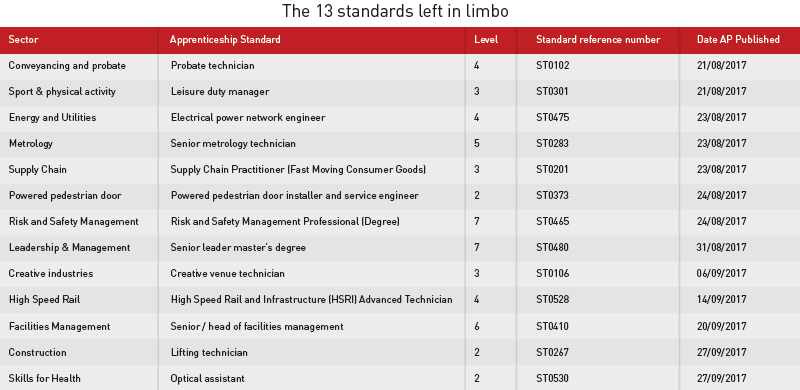Two colleges have seen their grades go up to ‘good’ this week – but three previously uninspected providers haven’t fared so well, including one rated ‘inadequate’.
KT Associates, an independent training provider, received the lowest possible grade across the board in a report published on December 1 and based on an inspection in October.
Safeguarding at the small loans-only provider, which had 220 learners at the time of inspection, is “not effective”.
Of particular concern was “weak” risk assessment, “including when assessors carry out late-evening, lone-working appointments and when family members and friends, including babies and young children, are in learners’ homes and community venues”.
Other issues included “ineffective” governance arrangements and the “very low” proportion of learners achieving their qualifications.
A spokesperson for the provider told FE Week it was “devastated” by the verdict.
“The wording of the report is hugely disheartening and does not accurately detail how we work, our motivations and company ethos,” she said.
Elmhouse Training received a grade three after its first inspection, in a report published on November 29 and based on an inspection in late October.
The proportion of learners at the small independent training provider that achieved their qualifications on time is “too low”, the report said.
Teachers do not “provide learners with sufficient information about what they have done well”, and they also put “insufficient focus on the development of learners’ literacy and numeracy skills”.
However, inspectors noted that “staff support learners well to develop their self-confidence and enthusiasm, and to manage any personal issues that might prevent them completing the course”.
Hob Salons, an employer-provider, also received a grade three in its first inspection, published on November 30 and based on an inspection at the end of October.
Staff “do not manage the link between apprentices’ workplace and classroom training well enough”, the report said, while apprentices are not given enough help to “improve their writing skills”, with the result that “the majority of apprentices do not develop good skills in written English”.
Meanwhile, Suffolk New College received a grade two, up from its previous grade three – one of seven FE colleges to have done so since September – in a report published on November 30 and based on a mid-October inspection.
Leaders and managers “have been very successful in improving teaching and learning”, and “work well with employers and external organisations to strengthen and broaden the curriculum to meet local skills and requirements”.
The “large majority” of students and apprentices made “good progress” and “progress to further study at a higher level, into higher education or employment”.
Wyggeston and Queen Elizabeth I College, a sixth-form college, saw its overall rating improve from ‘requires improvement’ to ‘good’ in a report published on November 27 and based on an inspection at the end of October.
Senior leader and governors were praised for their “decisive actions” that had led to “considerable improvements in students’ progress and achievements since the previous inspection”.
Students benefit from “good and improved teaching” that “interests and motivates” them – with the result that “most” achieved their qualifications.
However, the report did note that “despite improvements since the previous inspection, not enough students on vocational courses, and very few students on academic courses, benefit from real work experience”.
Five providers held onto their ‘good’ ratings following short inspections this week: Brooklands College, the ITP 5 E Ltd, and adult and community learning providers North West Training Council, Southend-on-Sea borough council, and PETA .
| GFE Colleges | Inspected | Published | Grade | Previous grade |
| Suffolk New College | 17/10/2017 | 30/11/2017 | 2 | 3 |
| Sixth Form Colleges | Inspected | Published | Grade | Previous grade |
| Wyggeston And Queen Elizabeth 1 College | 31/10/2017 | 27/11/2017 | 2 | 3 |
| Independent Learning Providers | Inspected | Published | Grade | Previous grade |
| KT Associates | 24/10/2017 | 01/12/2017 | 4 | – |
| Elmhouse Training | 31/10/2017 | 29/11/2017 | 3 | – |
| Employer providers | Inspected | Published | Grade | Previous grade |
| Hob Salons | 31/10/2017 | 30/11/2017 | 3 | – |
| Short inspections (remains grade 2) | Inspected | Published |
| Brooklands College | 01/11/2017 | 30/11/2017 |
| 5 E Ltd | 02/11/2017 | 01/12/2017 |
| North West Training Council | 01/11/2017 | 30/11/2017 |
| Southend on Sea Borough Council | 31/10/2017 | 30/11/2017 |
| PETA Limited | 01/11/2017 | 29/11/2017 |







